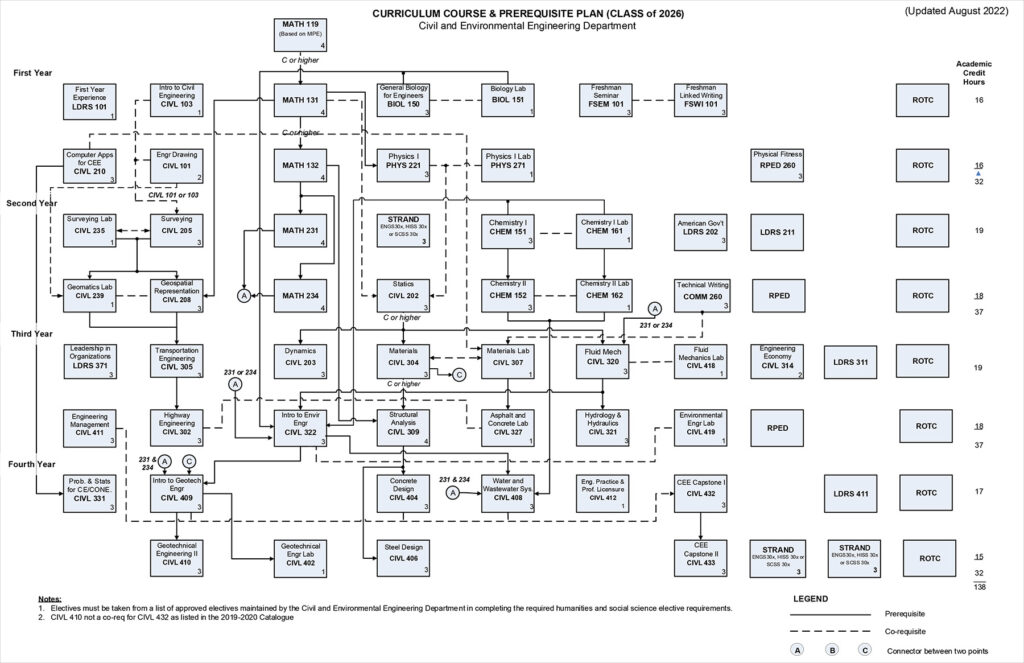Bachelor’s Degree in Civil Engineering
The civil engineering course curriculum focuses on practical issues related to engineering design and professional practice. Courses prepare students for challenging careers in civil engineering and include four discipline-specific concentrations:
Structural Engineering
Mechanics of materials, structural engineering systems, reinforced concrete design, and steel design.
Environmental Engineering
Air pollution and air quality control, hazardous and solid waste, hydraulics, hydrology, water resources, and water/wastewater treatment plant design.
Geotechnical Engineering
Soil mechanics, soil sampling and testing, shallow and deep foundations and retaining wall design.
Transportation Engineering
Airport design, maritime shipping facilities, public transit, traffic control devices, highway safety and roadway design.
Program of Study
The Civil and Environmental Engineering Department’s four-year program begins with courses that provide a foundation of knowledge and skill in the basic arts and sciences. Limited specialization in engineering starts during the sophomore year. In the junior and senior years, the time is devoted essentially to basic professional subjects. Throughout the four years, the program emphasizes the development of habits of orderly study, investigation, sound reasoning, problem-solving, and design, rather than the mere acquisition of factual information. It is stressed that an engineer is a professional, thoroughly grounded in engineering science and technology, but also aware of the social, economic, ethical, and ecological implications of professional activities. The civil engineering curriculum is accredited by ABET (www.ABET.org).
The curriculum culminates with a comprehensive capstone design course focusing on land development, environmental, structural, or transportation engineering. Students prepare design documents and engineering drawings within the context of professional practice.
What can I do with a Civil Engineering Degree?
Engineering employment opportunities include serving as technical experts, designers, constructors, and managers of major civil engineering projects such as power plants, waterways, airports, schools, hospitals, wetlands preservation, environmental protection, and many other public works and commercial infrastructure projects.
View the Major Academic Plan (Map) for Civil Engineering or our Program Brochure.
Curriculum Course and Prerequisite plan:

